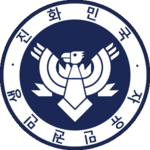Administrative Areas of Zhenia: Difference between revisions
mNo edit summary |
No edit summary |
||
| Line 1: | Line 1: | ||
The '''[[Greater Eastern Union of Zhenia]]''' is formally divided into four different levels of administration, which are separated by varying degrees of administrative power - provincial (provinces and metropolitan municipalities), prefectural ( | The '''[[Greater Eastern Union of Zhenia]]''' is formally divided into four different levels of administration, which are separated by varying degrees of administrative power - provincial (provinces and metropolitan municipalities), prefectural (independent city or prefecture), municipal (municipality, town or county) and township. | ||
==Levels== | ==Levels== | ||
=== | ===Regional Level=== | ||
{{main|Regional Classification of Zhenia}} | |||
Although not officially used by the Government of Zhenia since 1961, the '''[[Regional Classification of Zhenia#Regions|Regions]]''' were and still are at least statistically considered the highest level of administrative division in the nation. Consisting of multiple province-level administrative subdivisions, they have been classified primarily in accordance to geography and cultural similarities. While a nominal governmental structure existed for each of the regions until 1961, it has become more of a theoretical organization lacking a governing structure under the reforms of the [[Greater Eastern Union Third Republic|Third Republic]]. | |||
Today, however, such regions exist as statistical, administrative and social benchmarks used for reference within the government and among citizens. As of now, there are five of such regions statistically accepted by the Federal Census Bureau in the nation - the [[Danguk Peninsula]] region (often alternately referred to as Eastern Zhenia), [[Northern Zhenia]], [[Western Zhenia]], [[Central Zhenia]] and [[Southern Zhenia]]. | |||
===Province-Level Areas=== | |||
{{Template:Zhenia map labels}} | {{Template:Zhenia map labels}} | ||
| Line 12: | Line 20: | ||
====Metropolitan Municipalities==== | ====Metropolitan Municipalities==== | ||
=== | ===Prefecture-Level Areas=== | ||
=== | ===Municipality-Level Areas=== | ||
===Township Level=== | ===Township-Level Areas=== | ||
==History== | ==History== | ||
==Proposed Reforms== | ==Proposed Reforms== | ||
===Elevation of Haedong Special Administrative Region into a Province=== | |||
===Reorganization of Province-level Administrative Areas=== | |||
==See Also== | ==See Also== | ||
Revision as of 15:57, 31 January 2020
The Greater Eastern Union of Zhenia is formally divided into four different levels of administration, which are separated by varying degrees of administrative power - provincial (provinces and metropolitan municipalities), prefectural (independent city or prefecture), municipal (municipality, town or county) and township.
Levels
Regional Level
Although not officially used by the Government of Zhenia since 1961, the Regions were and still are at least statistically considered the highest level of administrative division in the nation. Consisting of multiple province-level administrative subdivisions, they have been classified primarily in accordance to geography and cultural similarities. While a nominal governmental structure existed for each of the regions until 1961, it has become more of a theoretical organization lacking a governing structure under the reforms of the Third Republic.
Today, however, such regions exist as statistical, administrative and social benchmarks used for reference within the government and among citizens. As of now, there are five of such regions statistically accepted by the Federal Census Bureau in the nation - the Danguk Peninsula region (often alternately referred to as Eastern Zhenia), Northern Zhenia, Western Zhenia, Central Zhenia and Southern Zhenia.
Province-Level Areas


